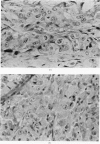Abstract
An in vitro agar colony technique has been developed for the growth of tumour cells taken directly from human tumours grown in immune-suppressed mice. The novel feature of the technique is the addition of a replenishable liquid phase which permits the maintenance of relatively slowly growing cells. A number of different xenografted tumours have been cultured successfully in this system, with red blood cells added to the agar and using 5% O2 in the gas phase. The technique has been used to assay cell survival in tumours treated in vivo with cytotoxic agents, and examples are given of survival curves obtained from a pancreatic tumours irradiated with gamma-rays and a colonic tumour from mice treated with cyclophosphamide. The results obtained by this in vitro method are in agreement with those from the agar diffusion chamber technique. This culture method has also been successfully used for the growth of cells taken directly from human tumour biopsy samples obtained in the clinic.
Full text
PDF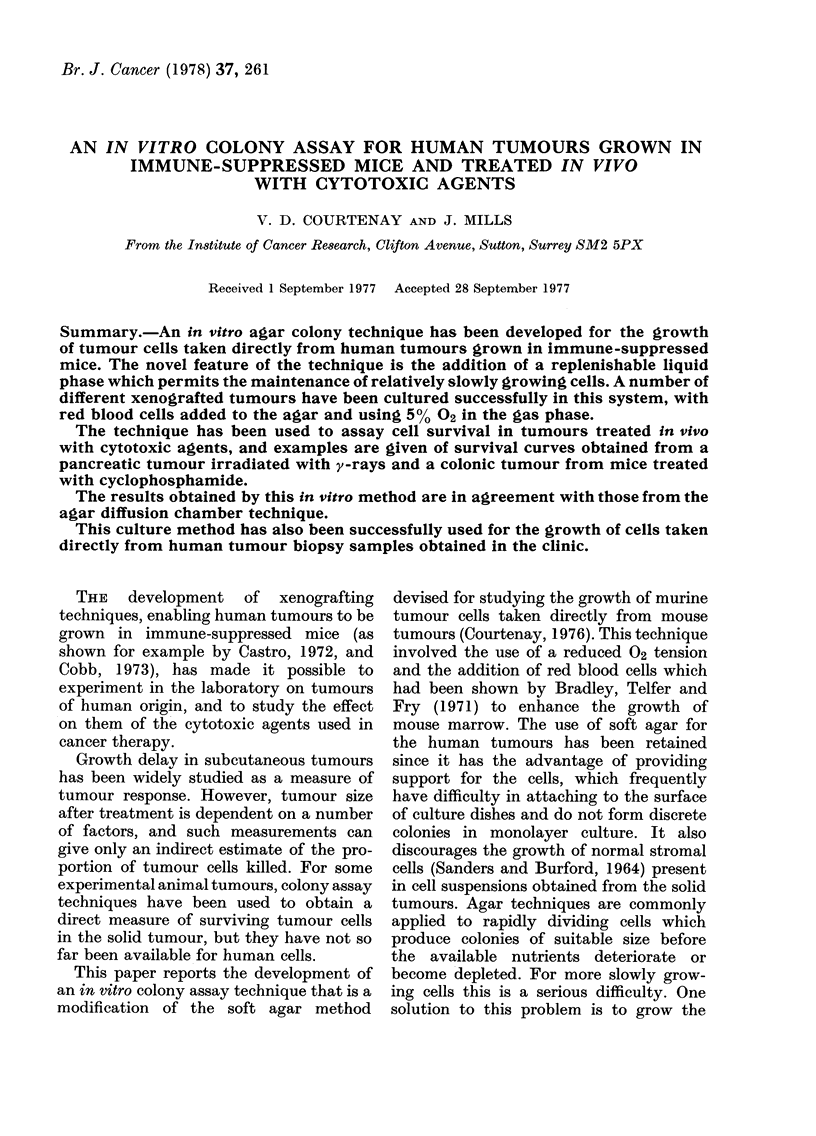
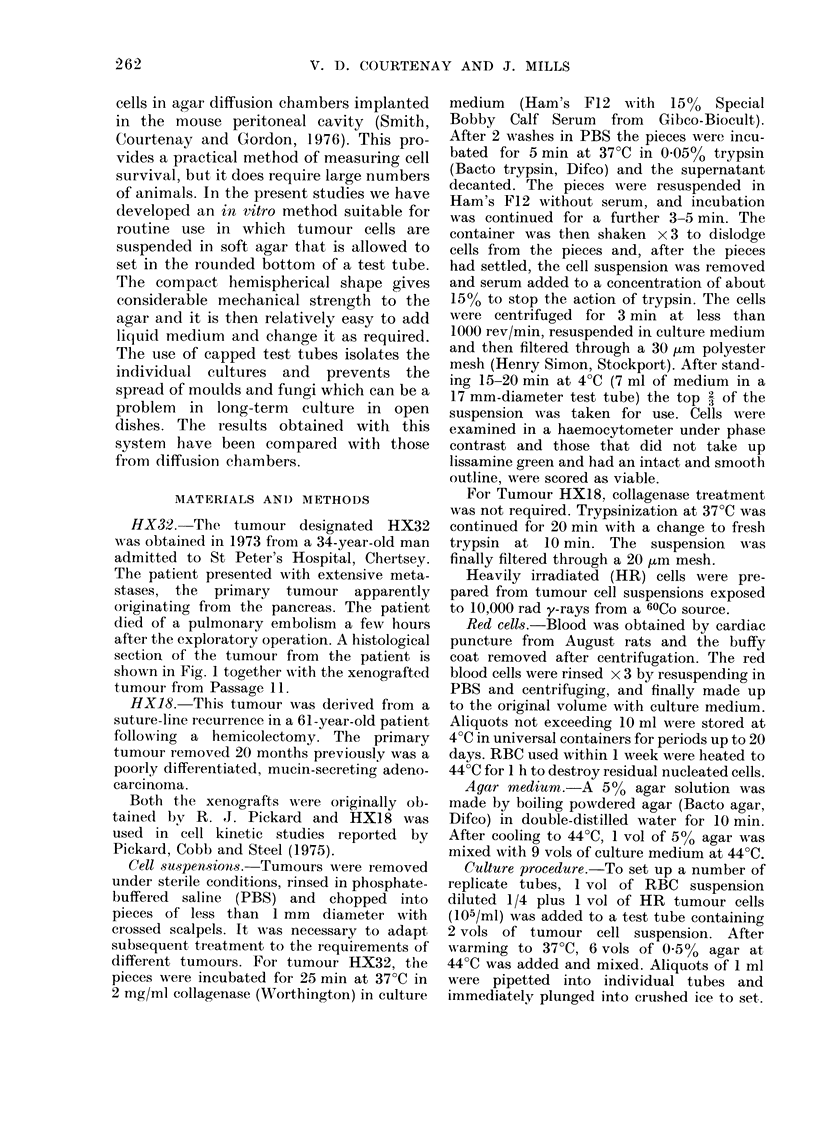
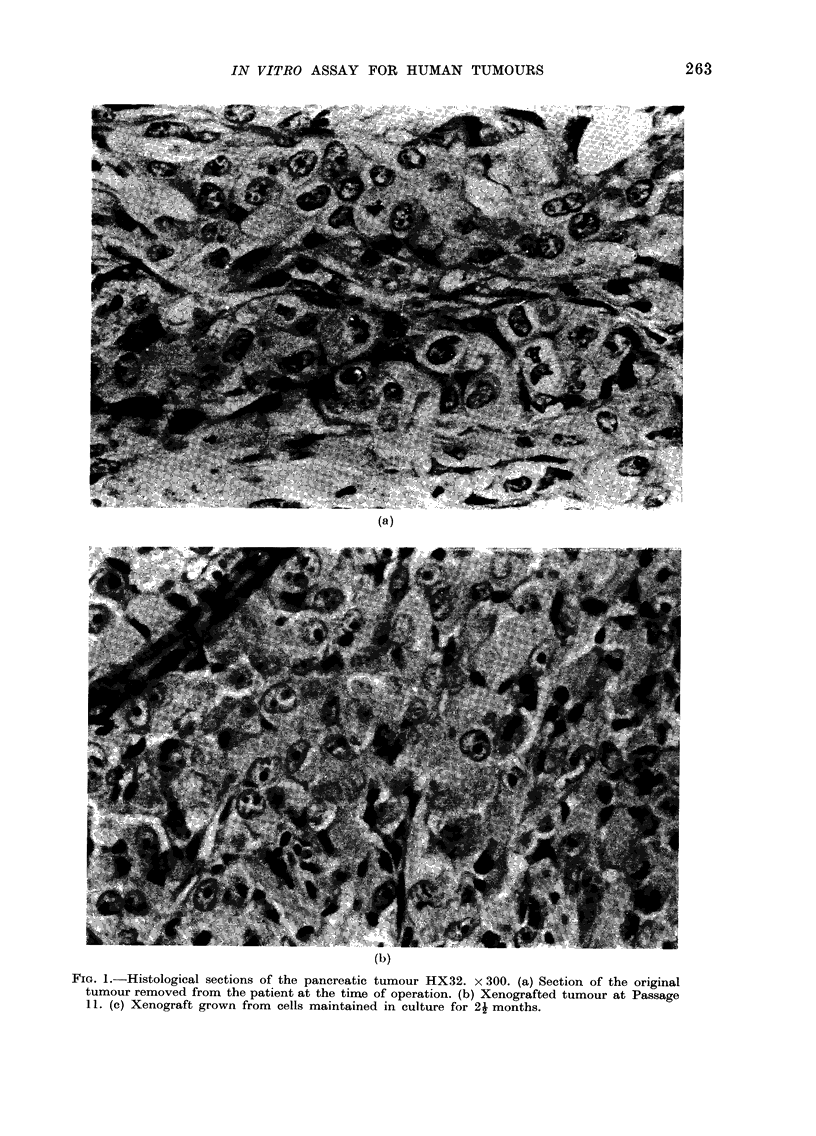
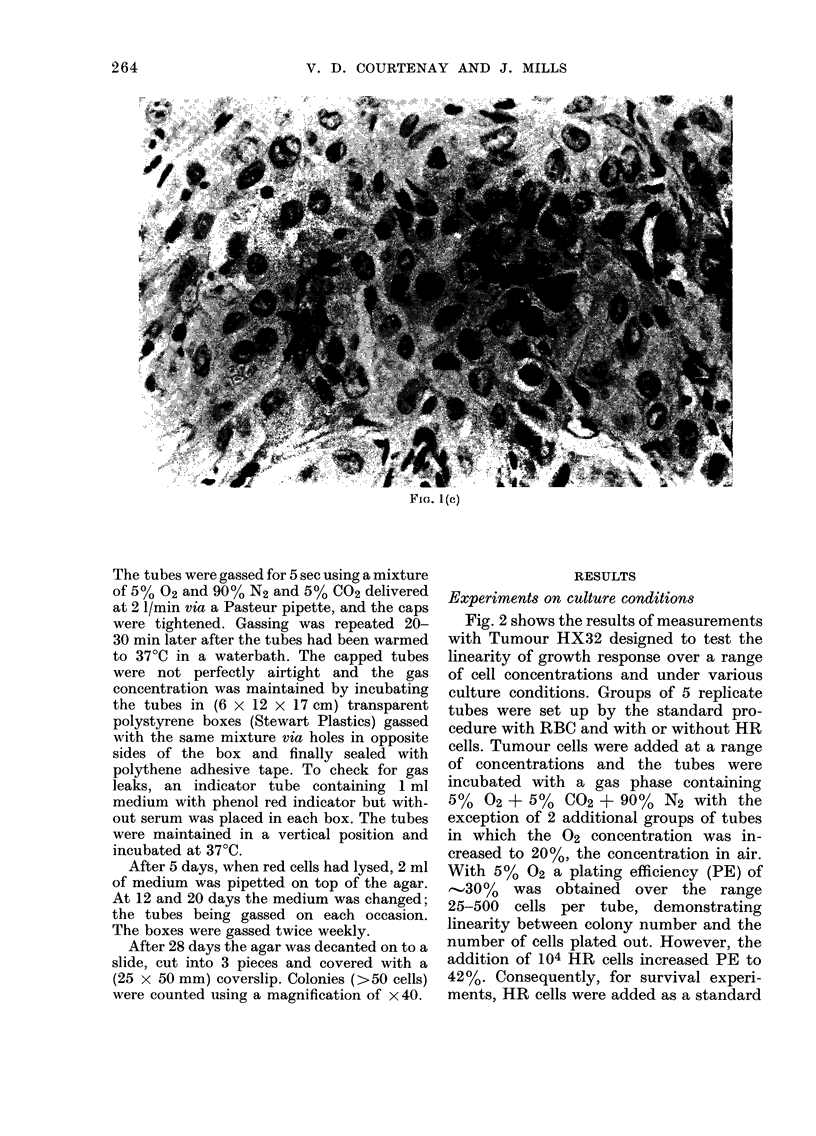
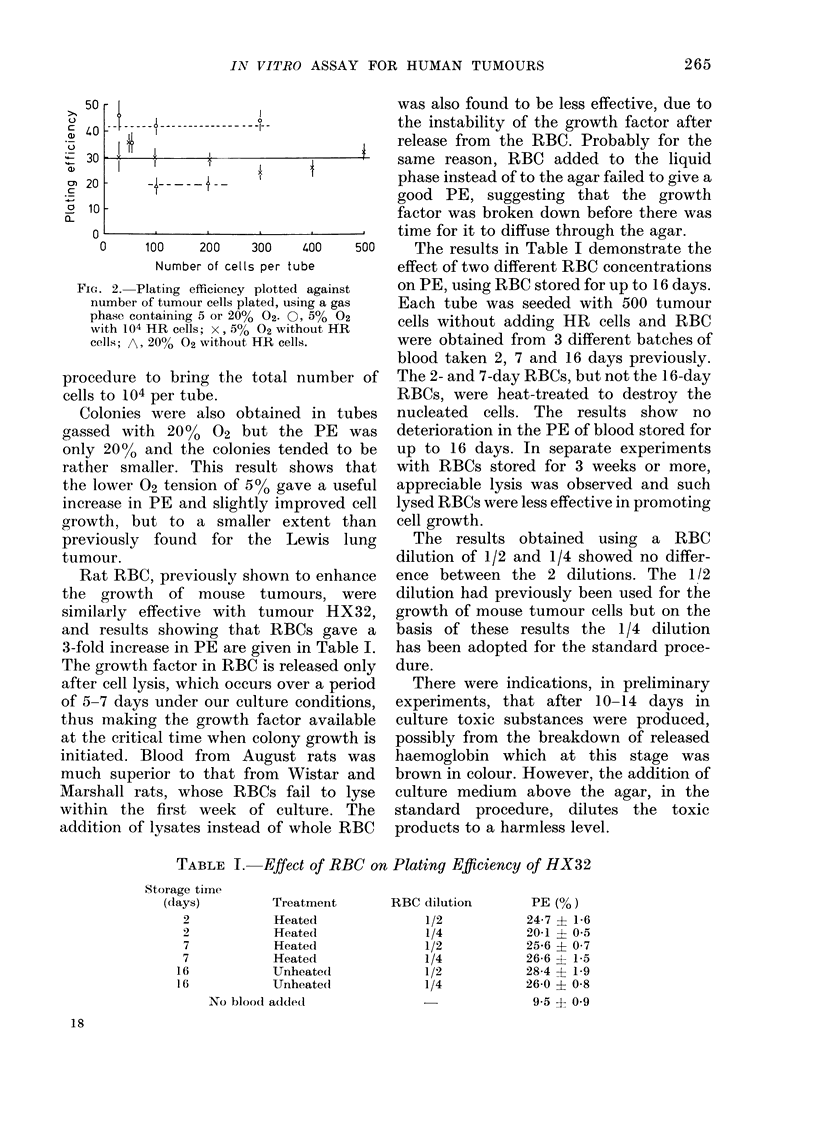
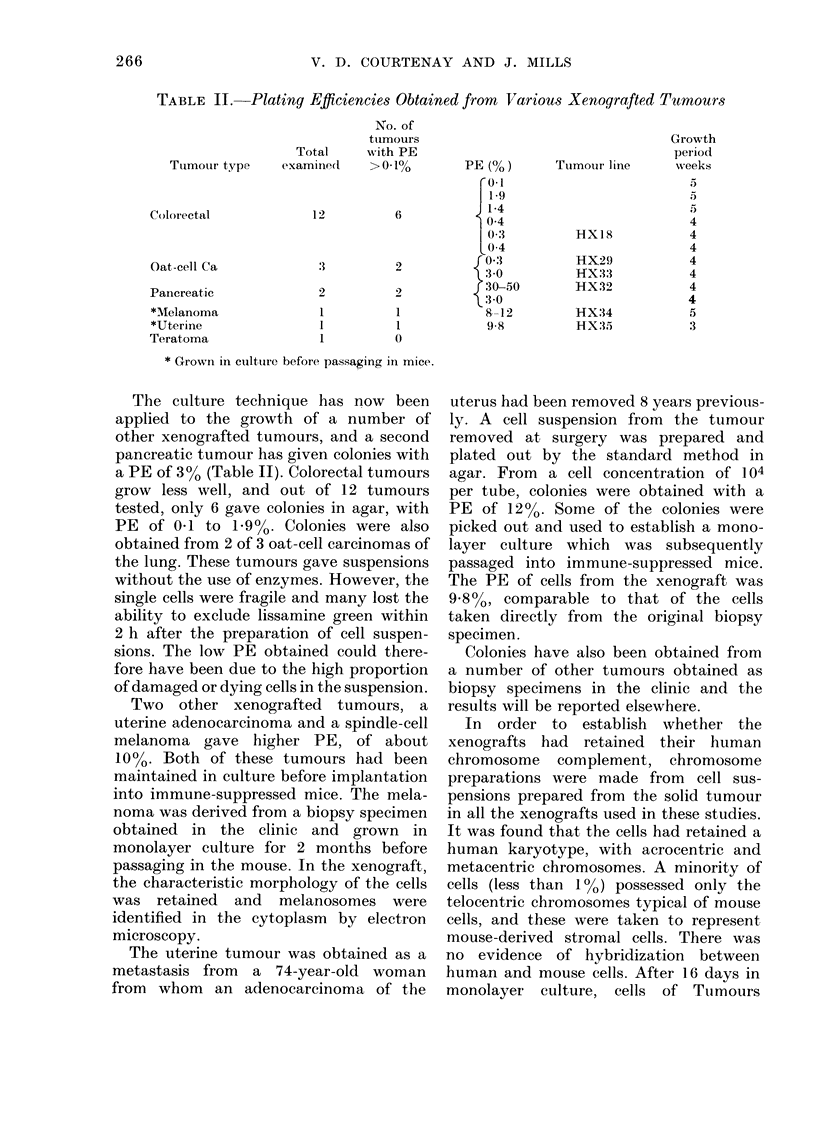
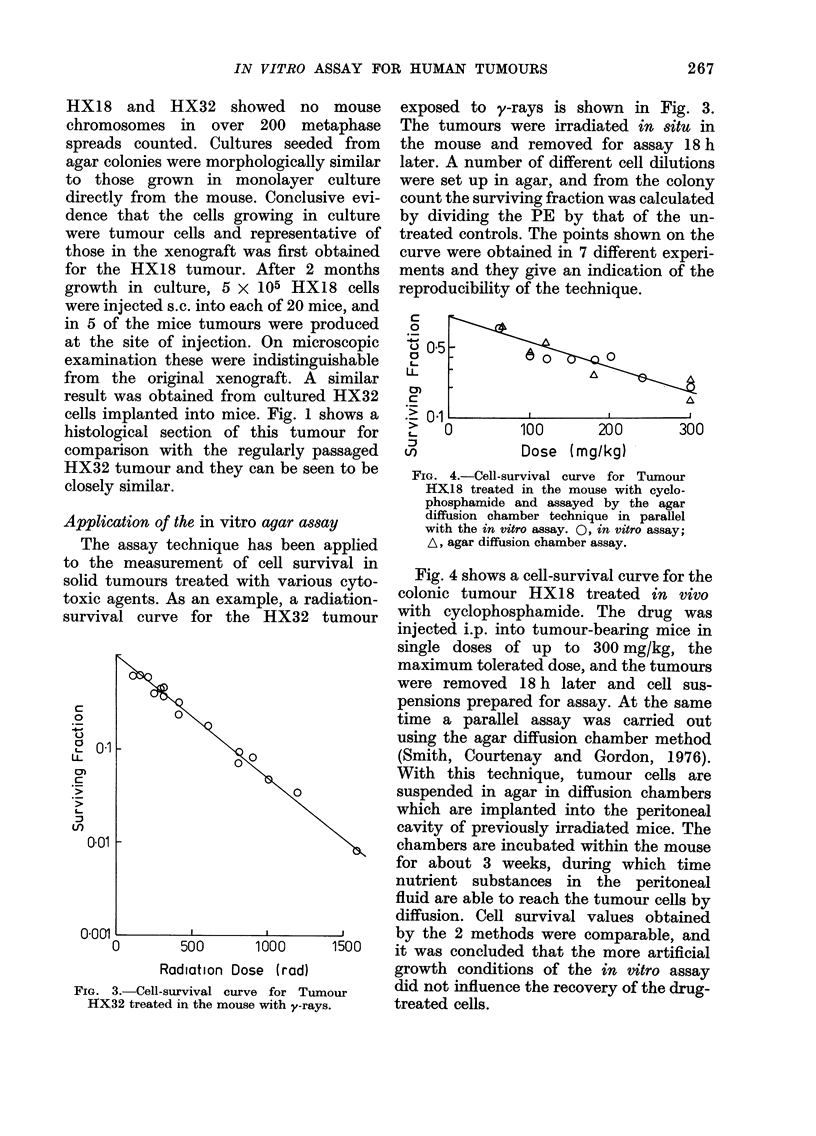
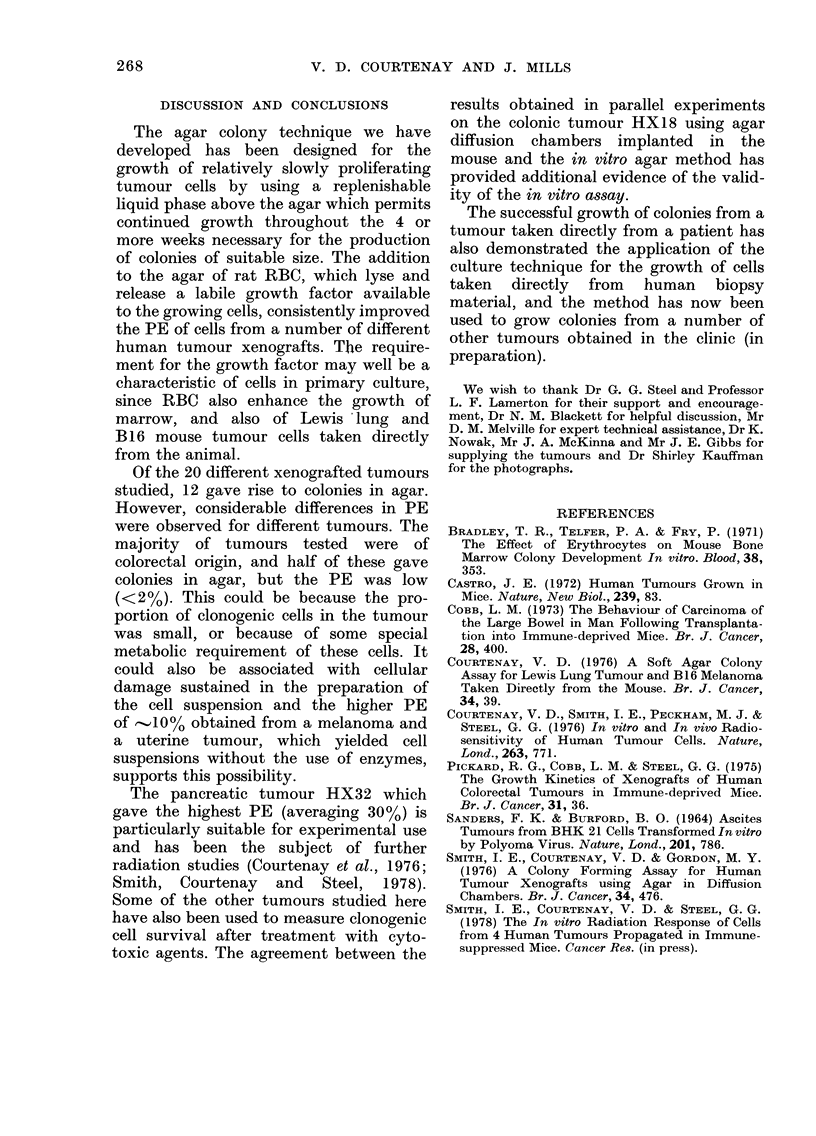
Images in this article
Selected References
These references are in PubMed. This may not be the complete list of references from this article.
- Bradley T. R., Telfer P. A., Fry P. The effect of erythrocytes on mouse bone marrow colony development in vitro. Blood. 1971 Sep;38(3):353–359. [PubMed] [Google Scholar]
- Castro J. E. Human tumours grown in mice. Nat New Biol. 1972 Sep 20;239(90):83–84. doi: 10.1038/newbio239083a0. [DOI] [PubMed] [Google Scholar]
- Cobb L. M. The behaviour of carcinoma of the large bowel in man following transplantation into immune deprived mice. Br J Cancer. 1973 Nov;28(5):400–411. doi: 10.1038/bjc.1973.165. [DOI] [PMC free article] [PubMed] [Google Scholar]
- Courtenay V. D. A soft agar colony assay for Lewis lung tumour and B16 melanoma taken directly from the mouse. Br J Cancer. 1976 Jul;34(1):39–45. doi: 10.1038/bjc.1976.119. [DOI] [PMC free article] [PubMed] [Google Scholar]
- Courtenay V. D., Smith I. E., Peckham M. J., Steel G. G. In vitro and in vivo radiosensitivity of human tumour cells obtained from a pancreatic carcinoma xenograft. Nature. 1976 Oct 28;263(5580):771–772. doi: 10.1038/263771a0. [DOI] [PubMed] [Google Scholar]
- Pickard R. G., Cobb L. M., Steel G. G. The growth kinetics of xenografts of human colorectal tumours in immune deprived mice. Br J Cancer. 1975 Jan;31(1):36–45. doi: 10.1038/bjc.1975.5. [DOI] [PMC free article] [PubMed] [Google Scholar]
- SANDERS F. K., BURFORD B. O. ASCITES TUMOURS FROM BHK.21 CELLS TRANSFORMED IN VITRO BY POLYOMA VIRUS. Nature. 1964 Feb 22;201:786–789. doi: 10.1038/201786a0. [DOI] [PubMed] [Google Scholar]
- Smith I. E., Courtenay V. D., Gordon M. Y. A colony-forming assay for human tumour xenografts using agar in diffusion chambers. Br J Cancer. 1976 Nov;34(5):476–483. doi: 10.1038/bjc.1976.201. [DOI] [PMC free article] [PubMed] [Google Scholar]



